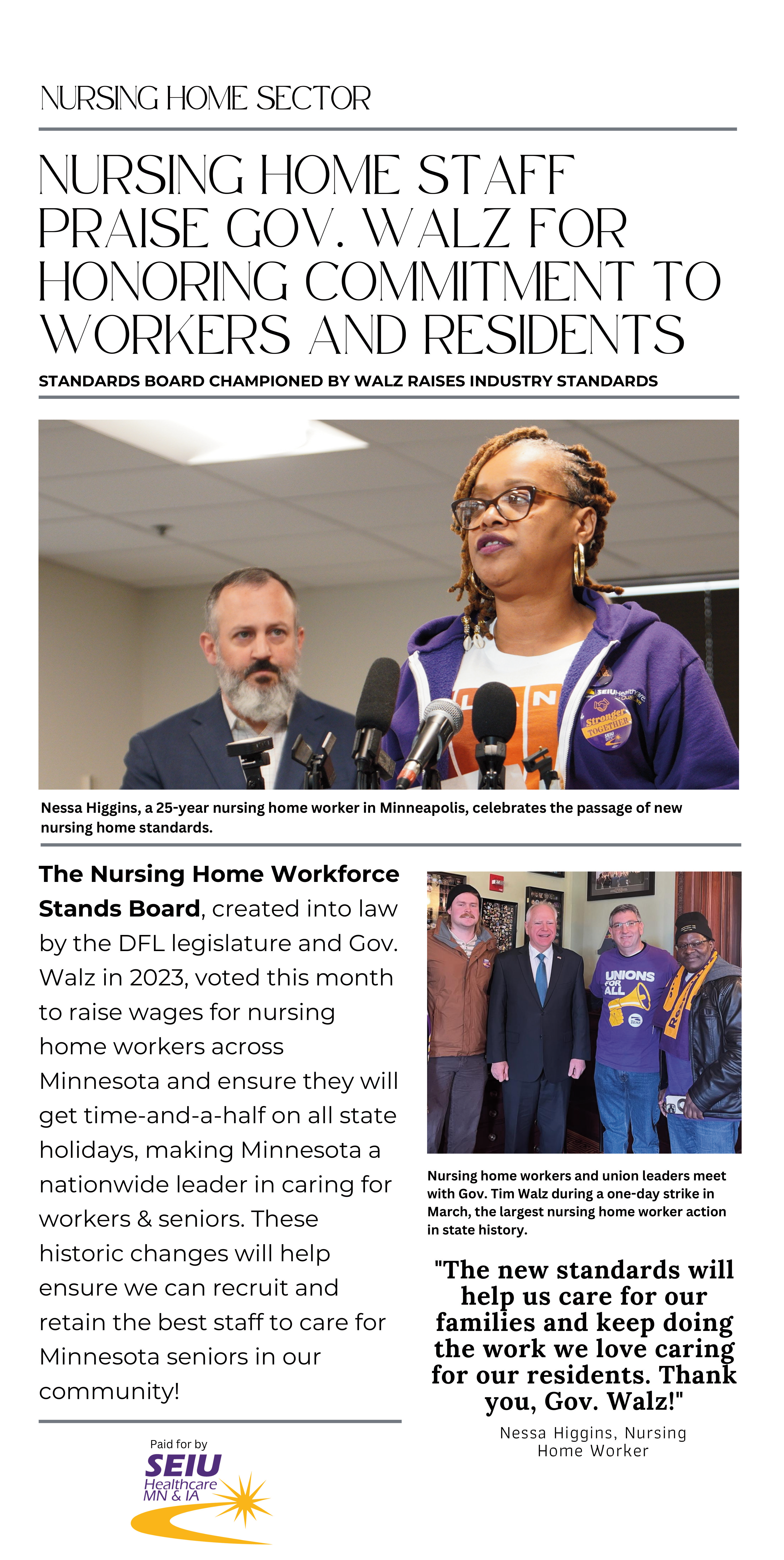
SEIU Healthcare Minnesota & Iowa, who represent thousands of nursing home workers and over 50,000 healthcare workers overall, are celebrating and thanking Governor Walz and the Minnesota legislature for their role in creating the Nursing Home Workforce Standards Board with full page ads in newspapers across the state. There will be additional digital ads also highlighting that the Board voted in the last month to raise wages for workers across the state and pass a standard that ensures all nursing home workers receive time-and-a-half on all 11 state holidays.
The Board was created by the Minnesota legislature during the 2023 session and signed into law by Governor Walz to address the ongoing workforce shortage crisis that is hurting residents, workers and our whole state. The Board is the first of its kind in the country that covers nursing home workers and has the authority to set standards like pay & benefits.
Nessa Higgins, who has worked in the industry for over 25 years and who spoke out following the initial vote on the standards, spoke about the importance of the standards and thanked Gov. Walz:
"These new standards will help us care for our families and keep us doing the work we love caring for our residents. Thank you, Gov. Walz!"
The board brings together three government representatives, three employer representatives, and three worker representatives and has the power to set minimum labor standards, like a minimum wage above the current state floor, for the nursing home industry to help strengthen the industry for residents and workers. The Board voted to raise wages for all workers to at least $20.50 in the next three years, with wage floors for certified nursing assistants in nursing homes at $24 per hour wage floor, trained medication aides at $25 per hour and licensed practical nurses at $28.50. The next step in the process of making these proposals a reality is a public comment period that should start sometime in the coming weeks.
These critical changes were passed with the three worker and three government representatives voting yes to support these improvements while the three employer representatives abstained from the vote both times it came up despite repeated acknowledgements by all members of the Board of the need to address the worker shortage.
Rasha Ahmad Sharif, Executive Vice President of SEIU HCMNIA and leader of the Long Term Care sector, shared the work that went into this victory and why it is so important in the fight to improve conditions for workers and residents:
"We hear every day from our members who work in nursing homes that they love this work, that this work is who they are, and they can’t see themselves doing anything else, but the work has become intolerable. People are leaving this field because of the low pay, lack of benefits, and disrespect they face from the people who run this industry. They see executives making hundreds of thousands of dollars a year, all while struggling to live on their paychecks as they do some of the most challenging work. It has been a revolutionary moment seeing nursing home workers – union and non-union alike – standing up and demanding change. We stand by and support this board and are excited for these new standards. We still have a lot of work to do, but this is an amazing step forward for nursing home workers and residents all across Minnesota."
Minnesota has the dubious distinction of having the worst nursing home workforce shortage in the country. Nursing home workers at dozens of nursing homes have been sounding the alarm, holding rallies, and even holding the largest nursing home worker strike in state history in early March. But despite huge amounts of state money sent to the industry in the previous decades, nursing home executives have refused to listen.
###

